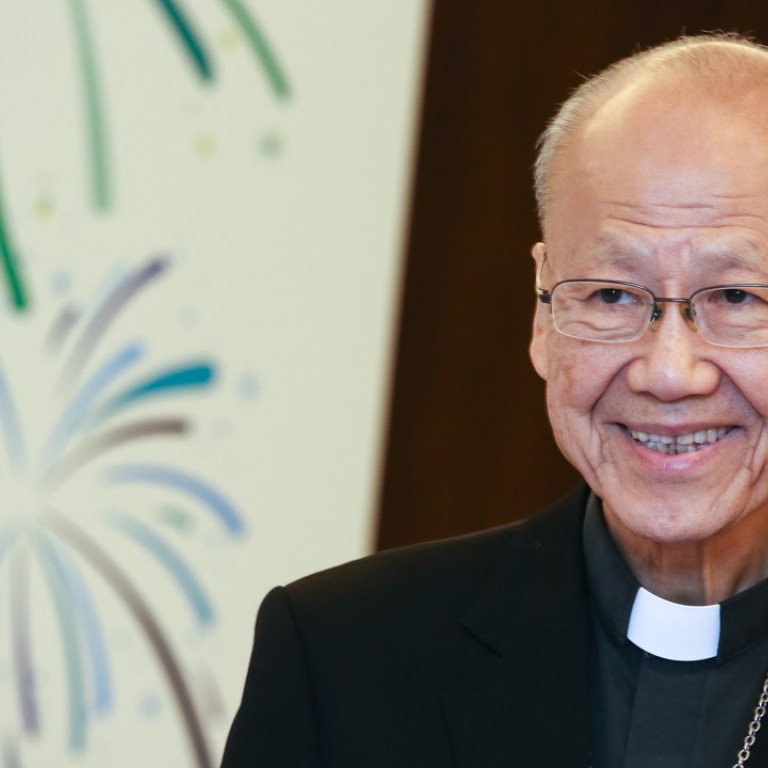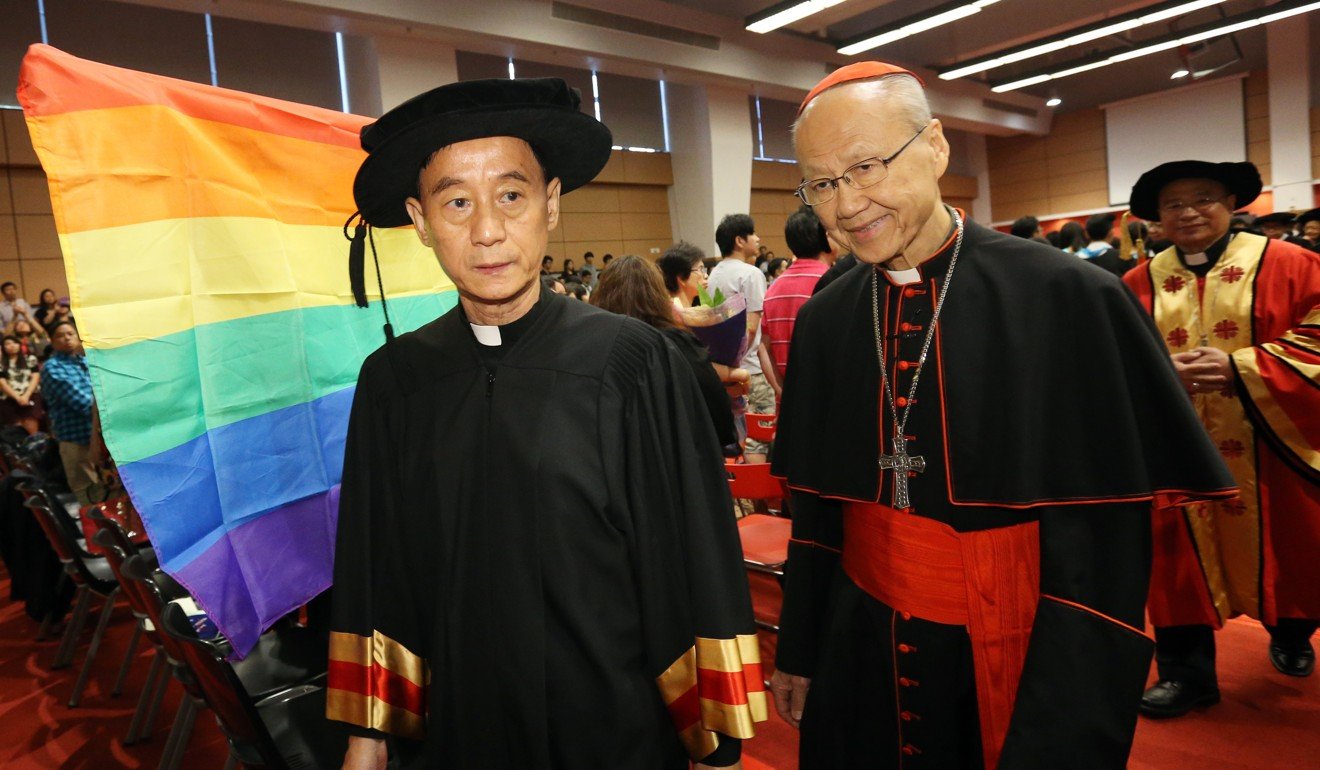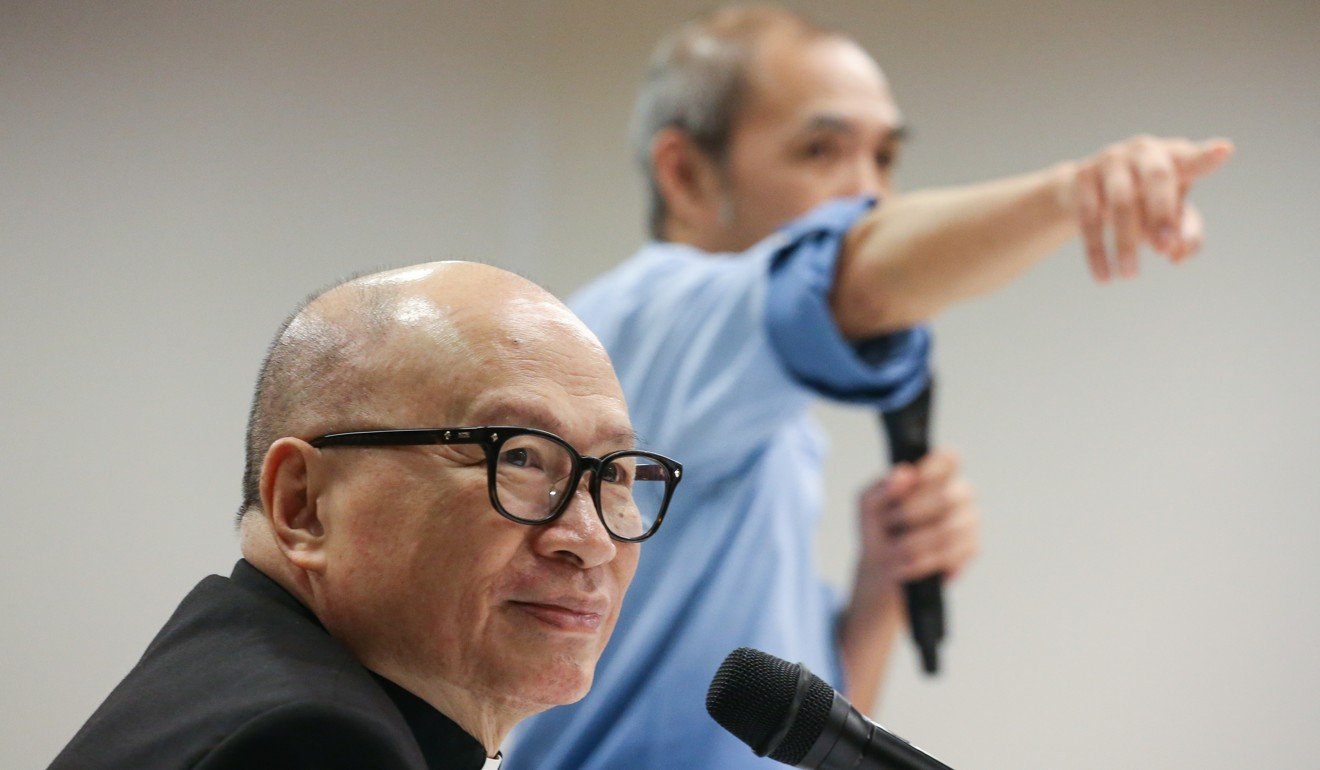
John Tong: the low-key Hong Kong cardinal seeking better ties with Beijing
The leader of city’s 389,000 Catholics made it clear that his approach would be different from that of his predecessor, pan-democrat Joseph Zen
Compared with his predecessor, Cardinal John Tong Hon was a relatively low-profile bishop during his eight years as leader of 389,000 Catholics in Hong Kong.
But commentators expect him to be remembered as a priest who supported and probably played a role in efforts by the Vatican and Beijing to secure a breakthrough in bilateral ties.
Even before Tong took the helm in 2009, pundits and academics regarded his challenges as tough. That was because during Cardinal Joseph Zen Ze-kiun’s seven years as bishop, the senior priest had established his status as a pro-democracy stalwart highly respected by pan-democratic groups.
Tong was never coy to comment on the difference between him and Zen, as he said – shortly after his appointment – that while the church would continue to care for the underprivileged, the way he would put his teachings into action “might be a little bit different” from those of his predecessors.
Shortly after he was anointed a cardinal by Pope Benedict in the Vatican in February 2012, he criticised the Hong Kong government for using the principle “market leads, government facilitates” as an excuse to shirk its duties to safeguard the well-being of its people.
Tong also pushed for “dual universal suffrage” by 2017 – meaning people would get to vote for both their chief executive and the whole Legislative Council ahead of Beijing’s timetable of 2020 at the earliest.
But a year later, after University of Hong Kong law professor Benny Tai Yiu-ting proposed the Occupy Central movement, which was designed as a last push in the battle for “one man, one vote” for the city’s leader, Tong said he would not encourage followers to take part as communication was a better option. Zen supported the Occupy movement.

Tong warned that “certain social movements are challenging and twisting” the city’s core values on marriage and family.
Tong’s appeal came two days before a parade by lesbian and gay groups and two weeks before the district council polls.
Before Tong made the controversial appeal, he told the Post in a rare interview conducted by email that “difficult” was one of three words he would use to describe his experience as Hong Kong’s bishop.
“It is wonderful to have had many capable predecessors who worked so zealously to build up the Catholic Church,” he said.
“Yet our mission has also been difficult from another perspective. The world is fast changing. Things change and we have to cope with the changing world without compromising our faith, our core values, and our vision and mission ... [but] nothing is impossible with God.”
Tong declined to specify the challenges he had in mind.

He also described Pope Francis as a “good example” for Catholics, as the pontiff remained humble and was “always reaching out to the poor and the socially marginalised”, even though he was the supreme leader of more than a billion Catholics.
In recent years, Tong was understood to have been involved in the Vatican and Beijing’s effort to secure a breakthrough in bilateral ties.
But Tong’s predecessor, Cardinal Zen, opposed such a deal, saying that he was worried that the church would be handing over its power to “an atheist regime”.
Tong, born in Hong Kong in July 1939, was ordained a priest in 1966. He was originally expected to retire after his 75th birthday in 2014, but in July that year, Pope Francis asked Tong to stay on as bishop of Hong Kong for another three years, and appointed Yeung, Stephen Lee Bun-sang and Joseph Ha Chi-shing as auxiliary bishops.

